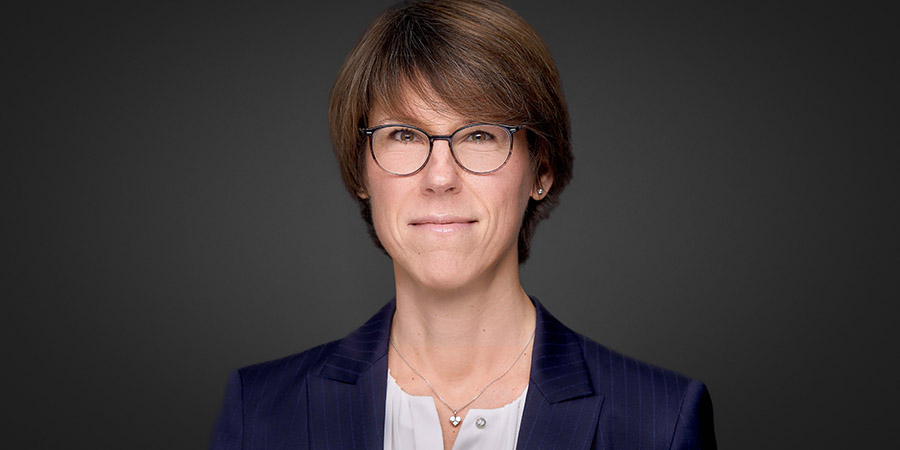
Acerca del autor
Dr. Christel Rendu de Lint
Head of investments and member of the global executive board
Más artículos
Knowing your supply chain is crucial for investing in a new era

Acerca del autor
Dr. Christel Rendu de Lint
Head of investments and member of the global executive board
Más artículosFor a single company, supply chain oversight can be complex. For professional investors with multiple companies in their portfolios, this task can be massive. Complexity, however, is not something to hide behind. As capital allocators, investment firms have a fiduciary duty to act in the best interests of investors. In the context of ESG expectations, regulations and best practice, this includes assessing and monitoring the supply chain activities of the companies in which they invest.
Data and new technology are delivering new opportunities for increased visibility around ESG red flags, and we welcome them. One area where this is set to make a huge impact is the confirmation of on-site human rights audits. Here, regulatory and legislative trends play a crucial role in pushing things in the right direction. If regulators can compel companies to provide accurate and accessible data, a start can be made in eliminating the thorns in the “know your supply chain” process.
At the macroeconomic level, data-driven clarity over which companies adhere to requirements for ethical compliance, coupled with penalties for those that do not, should start to create an ecosystem that naturally promotes an ESG-compliant approach. This assumes even-handedness, however. If legislation and compliance requirements are not globally comparable, or universally applied, then those companies that undercut on price with cheap labour, for example, can skirt the pressure to change. In such instances, and from an economic theory point of view, where the cost of reputational risk does not exceed the benefits of cheaper inputs, intervention is needed. Where would this responsibility fall?
While investors cannot be expected to do the job of regulators and law enforcement agencies, we can ask the tough questions and take the “vote with your wallet” concept to new heights. Our clients care about their legacies and the effects that their investments have on society. While it is not our job to tell clients what their legacies should be or what better futures they could help build, we have a fiduciary duty to incorporate all value drivers, including those for ESG, when advising them about opportunities and risks. Vontobel is committed to being a responsible citizen and we have four overarching ESG investment principles that we use in our actively managed investment processes to develop solutions that meet clients’ needs.
Last year, I contributed a piece to this report where we tackled the topic of sustainability in emerging markets. A similar question arose: should investment houses stop engaging with companies and marketplaces that are not yet up to the desired standards? Or is the greater good derived from continued investment that is contingent on clearly communicated ESG expectations, producing a dynamic in which highly experienced companies pass on their expertise?
We live with these questions day to day in our boutiques. In our sustainable equities boutique, for example, our focus is on emerging markets, where ethical consumerism can lag significantly in comparison with the situation in developed markets. It is, however, gathering momentum in some places quite quickly, especially when aligned with a focus on quality and consumer safety. Our experience shows that companies domiciled in emerging markets are often very receptive to hearing our perspective on where they can improve on ESG matters and their disclosure of them. They are also open to our sharing of information on ESG market trends and their regulatory drivers.
A focus on improving supply chain management brings benefits on many fronts. This is immediately apparent for those involved in the supply chain itself, as the example of compliance requirements regarding human rights audits makes clear. It also brings opportunities for new products and services. Consider those that use the Fairtrade label: data shows that many consumers will pay the higher price this induces.
At Vontobel, we view responsible consumption as a strong trend that we seek to capture as part of our approach to impact investing. Indeed, our entire investment approach is governed by the belief that, over time, consideration of ESG in investing best enables our clients to achieve their investment objectives. This applies to all six boutiques that constitute our multi-boutique set-up.
Returning to the fiduciary duty of capital allocators to act in the best interest of investors, ESG has fundamentally changed the way we invest for our clients. At an industry level, where investors have multiple companies in their portfolios, supply chains are in the spotlight. The era of clear delineation of ownership of “problems” is over (whether it ever existed is a topic for debate).
In the same way that “know your client” has become part of the banking furniture, it seems “know your supply chain” will follow suit.